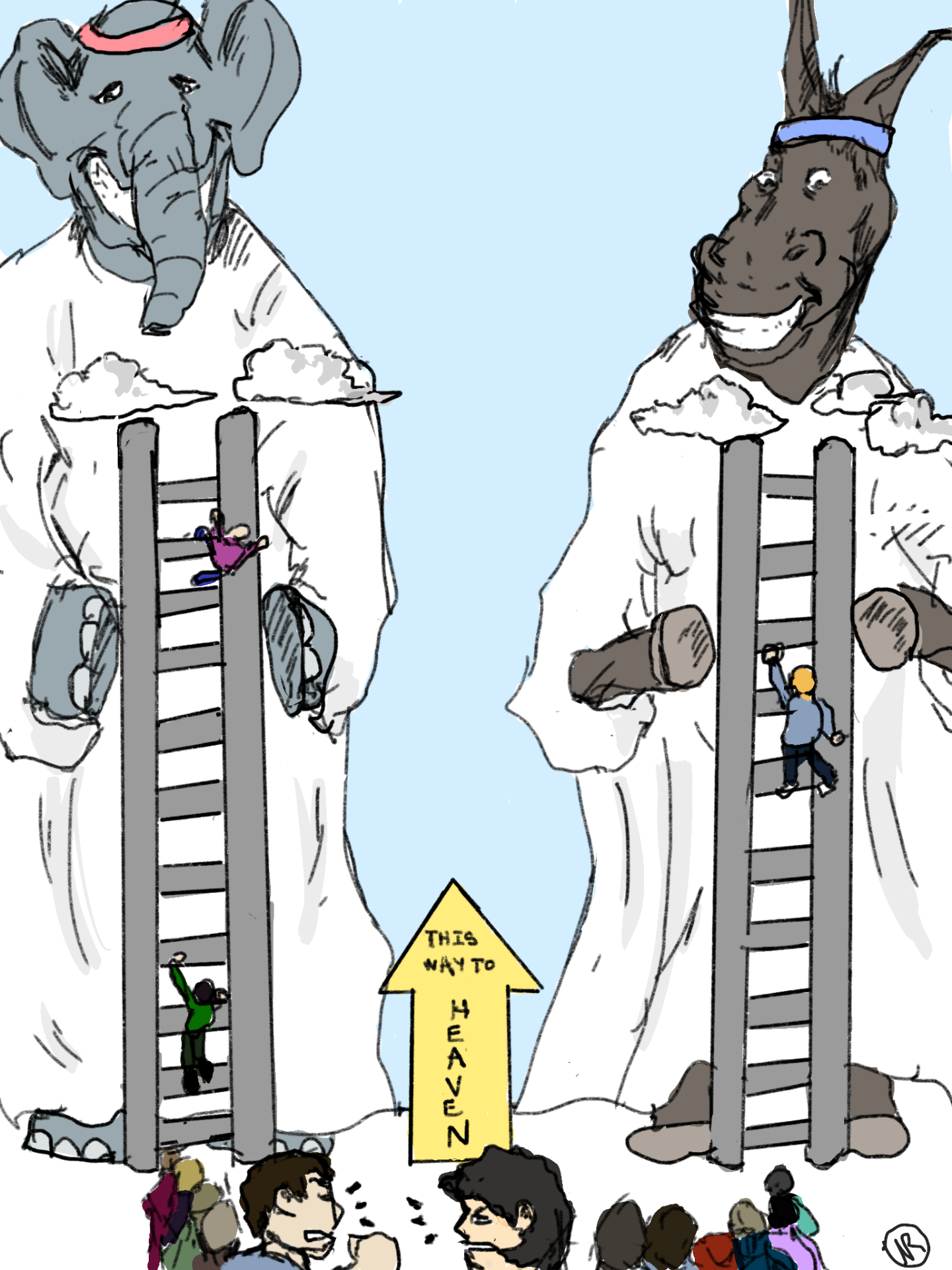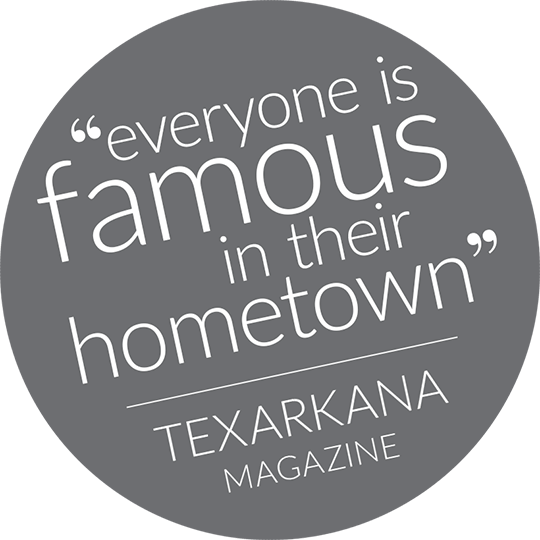Right or Left to the Promised Land?

As the fervor of the recent election season slowly recedes, it is helpful to reflect on what has transpired over the last few political cycles. Though reasonable people may disagree over methods, models, and modalities, it is undeniable that the concept of ‘identity’ rests at the core of our struggle. Firmly establishing who we are, both individually and in the broader social context, is critically important to building healthy relationships, and when our sense of identity is challenged, it undermines the integrity of our structural framework. At times, this is necessary for growth and development. Constant renegotiation of identity, however, leads to nothing but discontent, doubt, and despair. The solution is to exercise discretion when determining who we allow to shape our sense of identity. It is helpful, even necessary, to take inventory and identify precisely who holds sway in constructing our personal identity map.
When faced with the emotional turmoil produced by the conflict unfolding around us, it is deeply embedded within our nature to search for reliable ‘sense-making’ sources. It is critical to our survival to learn vicariously from a trusted community. From the perspective of human-as-organism, natural reflex is to respond to alarming external stimuli and then promptly restore the body to a resting state without engaging voluntary faculties. From the standpoint of human-as-conscious-being, we wrestle with reconciling a similar dilemma when confronted with the need to process information and promptly determine whether it is actionable. The amount of input from external stimuli is infinite, yet our ability to consume, sort, prioritize, and mobilize pales in comparison. To handle this task and still maintain the emotional capacity to successfully engage with the outside world, we frequently look to trusted sources to assist in filtering and interpreting the activities unfolding around us. Historically, the bulk of this ‘outsourcing’ has been entrusted to two primary partners: the nuclear family and the local church. In the modern era, however, this role is increasingly assigned to social media and political institutions. Put simply, we have constructed the modern equivalent of the golden calf and we have sold our souls for a sense of belonging.
Politics has always been tightly stitched into the American fabric. Our nation owes its existence to the outcome of a protracted political revolution. Yet, despite having our birth as a republic tied directly to a political putsch, our desire for independence did not fundamentally change the core values of the people. The reality of this was clearly communicated in the founding documents. With the facts boldly “submitted to a candid world,” these rebels championed a complete paradigm shift in the role of government. Rather than taking the form of master, this new nation would limit the authority of the political establishment and narrow its scope to ensure each individual’s right to “Life, Liberty, and the pursuit of Happiness.” While enjoying the privileges afforded to us as citizens of modern-day America, it is easy to miss the signal importance of this event in 1776. Long before we had any assurance of winning a violent military struggle against the world’s largest superpower, our Founders courageously penned a document accusing the most powerful monarch on the globe of unforgivable tyranny and bravely affixed their names as a sign of solidarity. It is no wonder Benjamin Franklin quipped, “we must all hang together, or most assuredly, we will all hang separately.” Brutal warfare ensued for five more years before the decisive victory at Yorktown in 1781, and another six years passed before the Constitution was drafted in 1787. Perhaps most impressive in this unprecedented shift of political power was the formation of the Bill of Rights in 1791. This document was specifically created to address the most persistent objections to the rights and responsibilities enumerated in the Constitution. Rather than use the pressing political uncertainty as an opportunity to garner power, our leaders clarified and amplified the fundamental rights of the individual to ensure its citizens, not their government, remain in control; therefore, the first amendment protected the individual’s freedom of religion, speech, press, and the right to assemble and peacefully seek a redress of grievances. As our political future dangled in the balance, our forefathers remained stalwart in their commitment to this new model which declared the Creator as the Source, the individual as the Aim, and the political institution as its Defender.
For this new system to work effectively, the Aim must stay firmly connected to the Source, and the Defender must suppress its natural inclination to wrestle power from those it was created to serve. John Adams underscored this point in 1798 when he conceded that “our Constitution was made only for a moral and religious people. It is wholly inadequate to the government of any other.” This precept, I would argue, is the key difference between the American Revolution and the principles undergirding the French Revolution. In France, the Third Estate demanded Liberty, Equality, and Fraternity and built their demands atop the shoulders of the great Enlightenment philosophers. In America, these same Enlightenment ideals were woven into our political framework; but in Europe, the primary impetus was the exaltation of human reason, while the American system demanded that reason be tempered by virtue. This model of moral reasoning produced the sustained rise in America’s global prominence throughout the 19th and 20th centuries.
As our knowledge of the physical world has advanced, we have been forced to re-examine many of the assumptions of our forebears; meanwhile, the increased pressure produced by a constant barrage of information from sources scattered around the world and the impact of economic globalization have eroded away our emotional buffer. Now unfortunately, rather than seeing the rapid updates to our understanding of the Book of Nature as supplemental to the Book of Faith, they are overwhelmingly pitted against one another as irreconcilable, warring factions. This false dichotomy has led many to accept one Book and completely reject the other. Sadly, and unnecessarily I might add, this has sparked a steady erosion of the trust granted to our local communities of faith, and their leaders, in the important role they play as one of the key pillars of our outsourced ‘sense-making.’ To further complicate matters, the overall well-being of the American family has suffered harm as well. Tracking the percentage of children who grow up in two-parent homes is one of the best proxies to gauge the health of the family. The latest figures show a 20% decline since 1960; hence, we are experiencing a shaking of the other pillar as well. We have traded pastors for podcasts, replaced fathers with Facebook, and asked the media for meaning.
The mention of these facts is not intended to cast disparagement nor induce panic; rather, it provides some important context, I believe, is helpful in understanding the reason behind the trends. Nature abhors a vacuum, so, in the absence of an easily accessible, more trustworthy source, the human heart clings to the nearest alternative on which to cast its hope for identity affirmation; there is always an ample supply of golden calves eager to fill the void. It should come as no surprise when these modern-day Towers of Babel break ground and commence construction. There is a longing within us, part physical and part spiritual, to find a place of rest in the face of conflict. As we rebel against the proven pillars of a bygone era, we increasingly find ourselves moored to the flimsy foundations offered in their place, only to discover they are the inept creations of an emperor who has no clothes. At risk of oversimplifying, most all of us are seeking three basic things: a place to belong, a place to contribute, and a source of meaning. Modern political affiliations are fantastic outlets for belonging and contribution but are woefully inadequate as purveyors of purpose. Similarly, social media can provide a wonderful platform for sharing information, but it is merely a counterfeit at facilitating real interpersonal communication.
In sum, I encourage you to engage politically. Take full advantage of the many benefits of political affiliations. Stay informed on matters of social import and, above all, let your voice be heard at the ballot-box. My only caution is that you keep politics in its proper place as you plan your future and make decisions that affect your reality. Rightly viewed, politics can add richness and vibrancy. As a golden calf, however, it will become rancorous and divisive, and lead you to wage war against your neighbor for something as silly as a yard sign. ![]()
Loyal friendships, tried and true
Abruptly over, because they vote Blue
Civility ceased, long since dead
Once discovered that they vote Red
In days ahead, regrets will swell
With passion cooled, showing friendships felled
From sleep arise, as time expires
Flee, my friend, from these pits of mire

